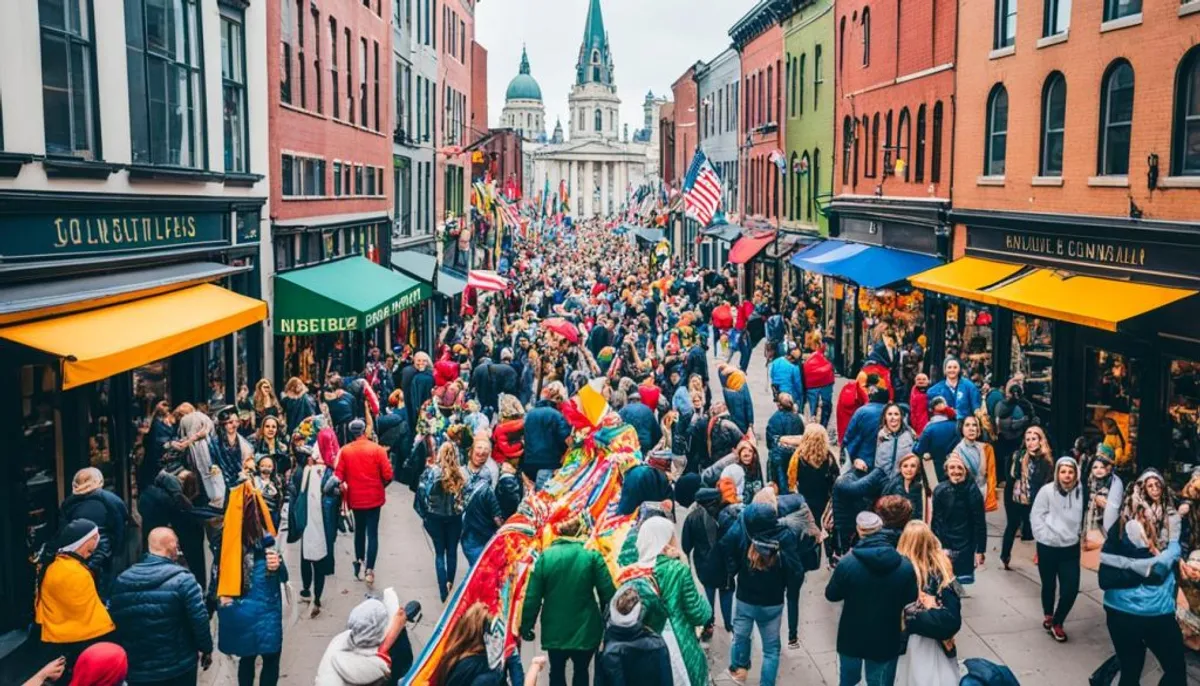The culture is essential for a living society. It helps us tell stories and entertain ourselves. It also allows us to imagine the future.
The culture is constantly changing. It is transmitted from generation to generation. It is a moment of sharing and cultural encounter.
It offers numerous social and economic advantages. It improves education, health, and tolerance. It makes communities more united, which increases welfare.

The culture in education and learning
The culture is very important for education and learning. It helps children and young people think more broadly and adapt. It also boosts their self-confidence, which improves their academic results.
Schools that offer artistic activities see their students perform better in reading and mathematics. The cultural heritage provides more opportunities to learn and understand history.
Role of libraries and online learning
Libraries are very important for accessing culture and learning. They offer books and activities such as lectures and workshops.
Online learning allows students to discover new cultural content. This broadens their horizons and enriches their learning.

In conclusion, culture is crucial in education and learning. It helps children and young people understand the world and become more open and enriched.
Culture and health
The culture is very important for our health and well-being. Cultural engagement and creativity improve our health. That is why, increasingly, culture is being integrated into healthcare, especially in the UK and Canada.
Improvement of physical and mental well-being
Cultural and creative activities are good for our well-being. They reduce stress and improve mood. They also help us feel connected with others.
Activities like dance or music are good for physical health.
Integration of culture into healthcare
Culture is increasingly being used in healthcare. In the UK, “Social Prescribing” allows doctors to prescribe cultural activities. In Canada, similar programs assist First Nations, Métis, and Inuit communities.
These programs combine traditional healthcare and culture. They are essential for improving the health and well-being of communities.
Impact of culture on communities
Culture is crucial for social cohesion and social capital. It brings people together through common interests and experiences. This aids in social integration and community empowerment. Moreover, it strengthens capacities and combats poverty.
Social cohesion and social capital
Cultural activities, such as festivals or informal exchanges, create social ties. They weave relationships and encourage solidarity and mutual understanding. This strengthens social capital, which is essential for community development.
Revitalization of neighborhoods and regional development
Culture is also crucial for the revitalization of neighborhoods and regional development. Cultural institutions, such as museums and libraries, energize the local economy. They improve the lives of residents and make regions more attractive.

| Indicator | Neighborhood A | Neighborhood B |
|---|---|---|
| Participation rate in cultural activities | 65% | 42% |
| Resident satisfaction index | 8.2 | 6.7 |
| Number of businesses created | 25 | 12 |
This table shows the positive impact of cultural offerings on revitalization and regional development. It compares two neighborhoods.
The economic benefits of culture
The cultural sector is crucial for the economy of France. It creates jobs and boosts innovation and productivity. Culture is more than entertainment and enrichment; it is an economic driver.
Contribution to job creation
In 2019, culture created 700,000 jobs in France. This represents 2.6% of total employment. These jobs range from art to cultural management. Thus, culture stimulates employment in France.
Stimulating innovation and productivity
Culture influences innovation and productivity indirectly. The innovation and creativity of the cultural sector ripple through the economy. Therefore, culture is essential for the French economy, creating jobs and stimulating innovation.
RelatedRelated articles


